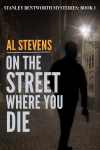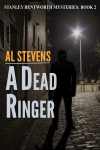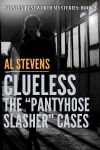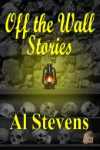Convention Highlights – Some General Observations
The convention is the place to build your vent chops, rub elbows with the pros, try out new ideas on an audience of your peers, and find some great products to use in your act. It is consistently exactly what I need at least once a year.
Several people took a special interest in Landon, my grandson, and were kind to and supportive of him. These people include Bob Abdou, Kelly Asbury, Steve Axtell, Lee Cornell, Bill DeMar, Jeff Dunham, Bob Issacson, Pete Michaels, Donald Woodford, and probably several others.
Please accept my thanks for being so nice to a young man who was enthralled and amazed by all the wonderful sights, sounds, and people of the convention. For those who were nice to an old man (me), too, more thanks. I send a special thanks to Donald Woodford who is a close friend. Don always has positive and encouraging words.
(Those are the positive comments. Following are comments and suggestions that can improve the convention in my opinion.)
After the convention, some folks expressed public and private disappointment at how some of it was run. They mentioned specific workshops and a dearth of help for newbies, and they identified what seemed to be an absense of some kind of enthusiastic welcome for first-timers.
I don’t have suggestions for how to improve the latter complaint, not being all that congenial myself, but here are some things management might consider to address the former.
First, collect statistics about the demographics of your attendees with respect to experience and status. This can be a simple checklist on the registration form. Is the attendee a newbie or an experienced vent? Does the attendee perform professionally, as an amateur at local venues, or in private? How long has the attendee been working or playing at ventriloquism? Tabulate the answers to these questions to help define the emphasis for future conventions and to help understand the feedback you get on the current convention.
Second, at each lecture and workshop venue, pass out and collect evaluation forms on which attendees anonymously rate each session according to their own impressions and needs. Most professional conferences and conventions do this for all their speakers. It lets management know which sessions and which kinds of sessions are helpful and which are not and maybe why. It also lets attendees rate the presenters, too. Each presenter gets a copy of all the evaluation forms for his/her sessions.
This year’s lectures and workshops were heavily oriented to the professional ventriloquist. How to improve your act, how to market your shows, how to deal with agents, how to rehearse for a performance, and so on. Which was perfect for me. But there seemed to be only one workshop aimed at entry-level ventriloquists and no lectures. Yet the number of performers in Junior Open Mic is growing, which indicates a larger ratio of beginners to veterans. And I met several adults who were just getting into the art and who wished there were more sessions aimed at their specific needs. But, without the statistics mentioned above, there is no way to tell for sure whether these are a small but vocal minority or if the complaints are valid.
I used to lecture at computer programming conferences, and they were organized into what they called “threads,” which address the specific needs of various kinds of attendees. Perhaps a vent convention could do that. On workshop day, there could be a beginner thread and a pro thread, with an equal number of sessions for each thread.
Pay no attention to complaints about the Drawbridge. It is what it is, and it works. But you should absolutely insist that all rooms in the general vicinity of the hospitality suite be set aside only for convention attendees. If you heed none of these other suggestions, please do that one thing. If you wonder why, ask Bob Hamill.
We always seem to have technical difficulties in videotaping or getting the presentations set up to display videos and whatever. It always seems that the convention is never well-prepared in this regard.
Also, as someone who has worked every kind of venue in every part of the world with every kind of sound setup, and as one who was a sound tech before a hearing loss curtailed that practice, I am surprised that the convention sound guy is alway behind the stage where he cannot hear what is going on in the house. He and his board should be at the back of the house so he can hear with his ears—and not headphones—what the house hears. That's the standard audio configuration for concert venues, and it requires only one additional piece of equipment, a "snake," which any professional sound technician worth his salt knows about. Furthermore, the loudspeakers you use are definitely too small for that room. Most of the children and female performers are difficult to understand and the musical accompaniments are muffled and distorted because the system is not adequately amplifying the full audio spectrum.
In short, in a venue of that size, you need professional sound.
Finally, since you insist that people, "Turn off your cell phones!" please also ask them to "shut up during the presentations." I moved several times just because of the incessant splinter conversations going on around me while I was trying to hear the presenter. Remind people that they aren't in their living rooms watching Oprah and that other people who paid to attend the sessions are not interested in their mindless blather.
Several people took a special interest in Landon, my grandson, and were kind to and supportive of him. These people include Bob Abdou, Kelly Asbury, Steve Axtell, Lee Cornell, Bill DeMar, Jeff Dunham, Bob Issacson, Pete Michaels, Donald Woodford, and probably several others.
Please accept my thanks for being so nice to a young man who was enthralled and amazed by all the wonderful sights, sounds, and people of the convention. For those who were nice to an old man (me), too, more thanks. I send a special thanks to Donald Woodford who is a close friend. Don always has positive and encouraging words.
(Those are the positive comments. Following are comments and suggestions that can improve the convention in my opinion.)
After the convention, some folks expressed public and private disappointment at how some of it was run. They mentioned specific workshops and a dearth of help for newbies, and they identified what seemed to be an absense of some kind of enthusiastic welcome for first-timers.
I don’t have suggestions for how to improve the latter complaint, not being all that congenial myself, but here are some things management might consider to address the former.
First, collect statistics about the demographics of your attendees with respect to experience and status. This can be a simple checklist on the registration form. Is the attendee a newbie or an experienced vent? Does the attendee perform professionally, as an amateur at local venues, or in private? How long has the attendee been working or playing at ventriloquism? Tabulate the answers to these questions to help define the emphasis for future conventions and to help understand the feedback you get on the current convention.
Second, at each lecture and workshop venue, pass out and collect evaluation forms on which attendees anonymously rate each session according to their own impressions and needs. Most professional conferences and conventions do this for all their speakers. It lets management know which sessions and which kinds of sessions are helpful and which are not and maybe why. It also lets attendees rate the presenters, too. Each presenter gets a copy of all the evaluation forms for his/her sessions.
This year’s lectures and workshops were heavily oriented to the professional ventriloquist. How to improve your act, how to market your shows, how to deal with agents, how to rehearse for a performance, and so on. Which was perfect for me. But there seemed to be only one workshop aimed at entry-level ventriloquists and no lectures. Yet the number of performers in Junior Open Mic is growing, which indicates a larger ratio of beginners to veterans. And I met several adults who were just getting into the art and who wished there were more sessions aimed at their specific needs. But, without the statistics mentioned above, there is no way to tell for sure whether these are a small but vocal minority or if the complaints are valid.
I used to lecture at computer programming conferences, and they were organized into what they called “threads,” which address the specific needs of various kinds of attendees. Perhaps a vent convention could do that. On workshop day, there could be a beginner thread and a pro thread, with an equal number of sessions for each thread.
Pay no attention to complaints about the Drawbridge. It is what it is, and it works. But you should absolutely insist that all rooms in the general vicinity of the hospitality suite be set aside only for convention attendees. If you heed none of these other suggestions, please do that one thing. If you wonder why, ask Bob Hamill.
We always seem to have technical difficulties in videotaping or getting the presentations set up to display videos and whatever. It always seems that the convention is never well-prepared in this regard.
Also, as someone who has worked every kind of venue in every part of the world with every kind of sound setup, and as one who was a sound tech before a hearing loss curtailed that practice, I am surprised that the convention sound guy is alway behind the stage where he cannot hear what is going on in the house. He and his board should be at the back of the house so he can hear with his ears—and not headphones—what the house hears. That's the standard audio configuration for concert venues, and it requires only one additional piece of equipment, a "snake," which any professional sound technician worth his salt knows about. Furthermore, the loudspeakers you use are definitely too small for that room. Most of the children and female performers are difficult to understand and the musical accompaniments are muffled and distorted because the system is not adequately amplifying the full audio spectrum.
In short, in a venue of that size, you need professional sound.
Finally, since you insist that people, "Turn off your cell phones!" please also ask them to "shut up during the presentations." I moved several times just because of the incessant splinter conversations going on around me while I was trying to hear the presenter. Remind people that they aren't in their living rooms watching Oprah and that other people who paid to attend the sessions are not interested in their mindless blather.










0 Comments:
Post a Comment
Subscribe to Post Comments [Atom]
<< Home